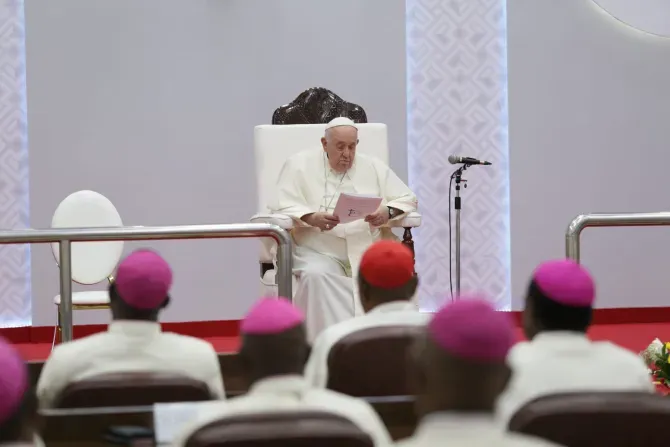Kinshasa, 03 February, 2023 / 9:45 pm (ACI Africa).
The enthusiasm, joy, and missionary zeal of Congolese Catholics give oxygen to the whole Church, Pope Francis said during his final meeting in the Democratic Republic of Congo on Friday.
“As a Church we need to breathe the pure air of the Gospel, to dispel the tainted air of worldliness, to safeguard the young heart of faith. That is how I imagine the African Church and that is how I see this Congolese Church,” he said during an encounter with the country’s bishops.
Pope Francis met 57 of the 74 current and retired bishops of the DRC at the headquarters of the national bishops’ conference of Congo (CENCO) before heading to the country’s N’djili International Airport for a more than three-hour flight to South Sudan, which he will visit Feb. 3-5.
The pope said during his Jan. 31-Feb. 3 visit he saw the Church in the DRC as “a young, dynamic and joyful Church, motivated by missionary zeal, by the good news that God loves us and that Jesus is Lord.”
“Yours is a Church present in the lived history of this people, deeply rooted in its daily life, and in the forefront of charity,” he told the bishops. “It is a community capable of attracting others, filled with infectious enthusiasm and therefore, like your forests, with plenty of ‘oxygen.’ Thank you, because you are a lung that helps the universal Church breathe!”








